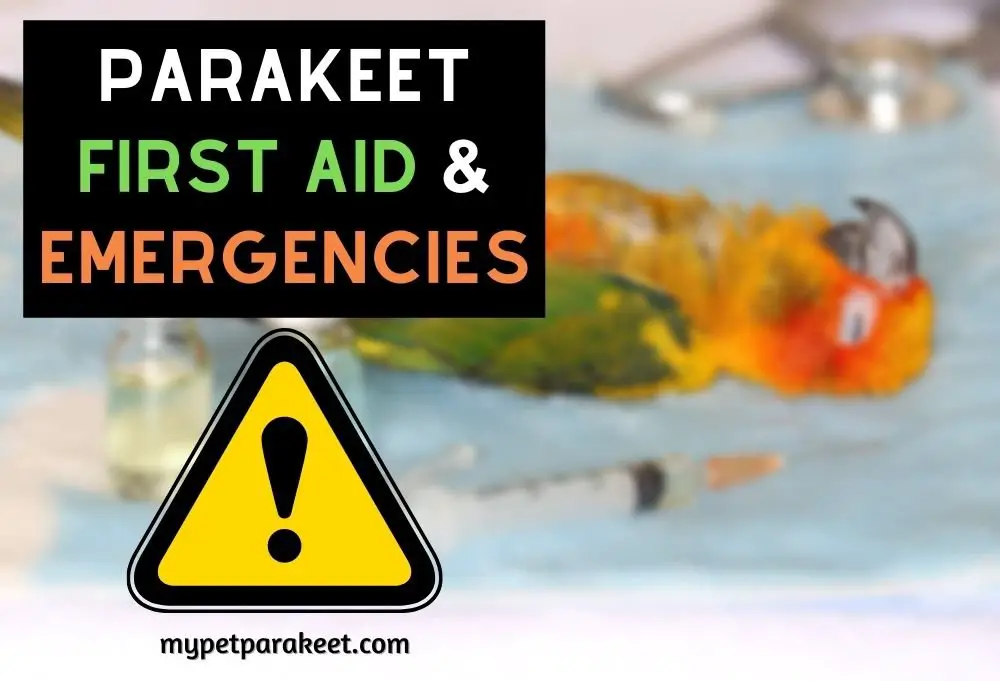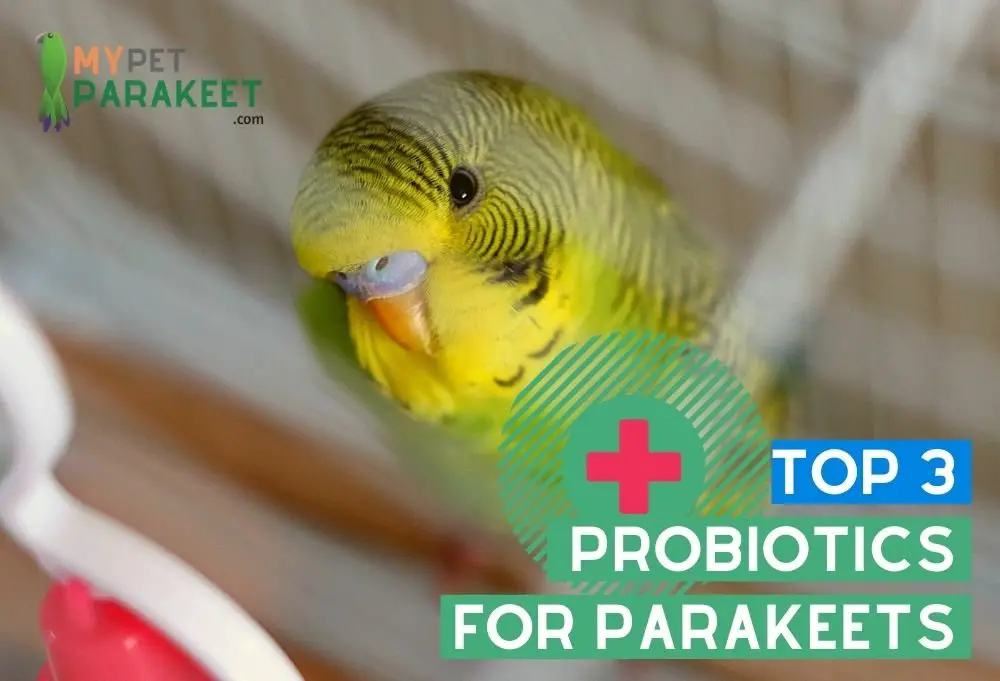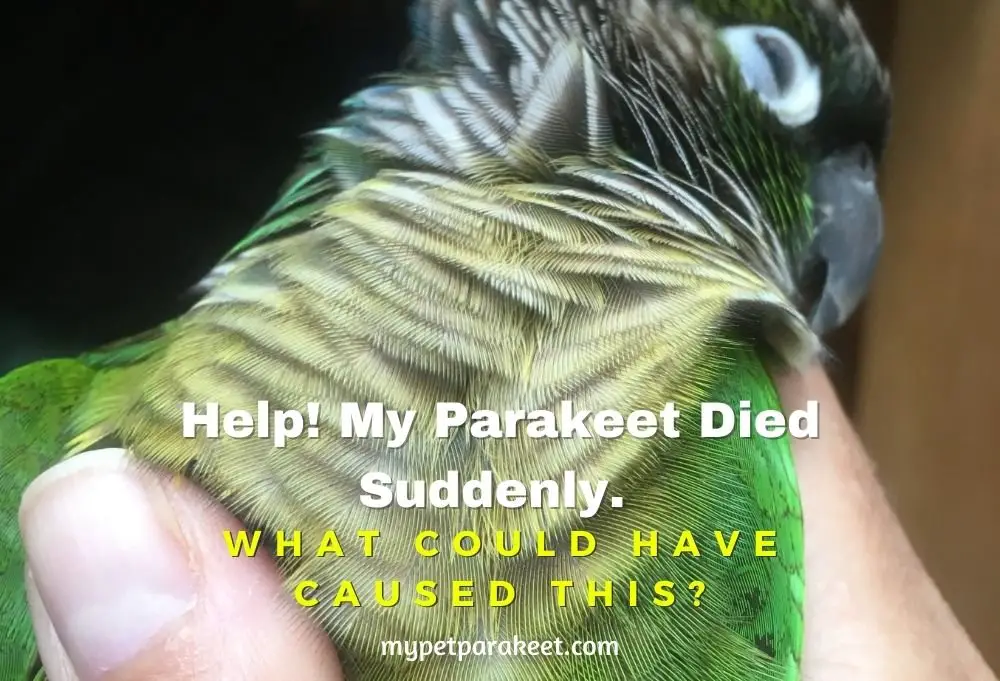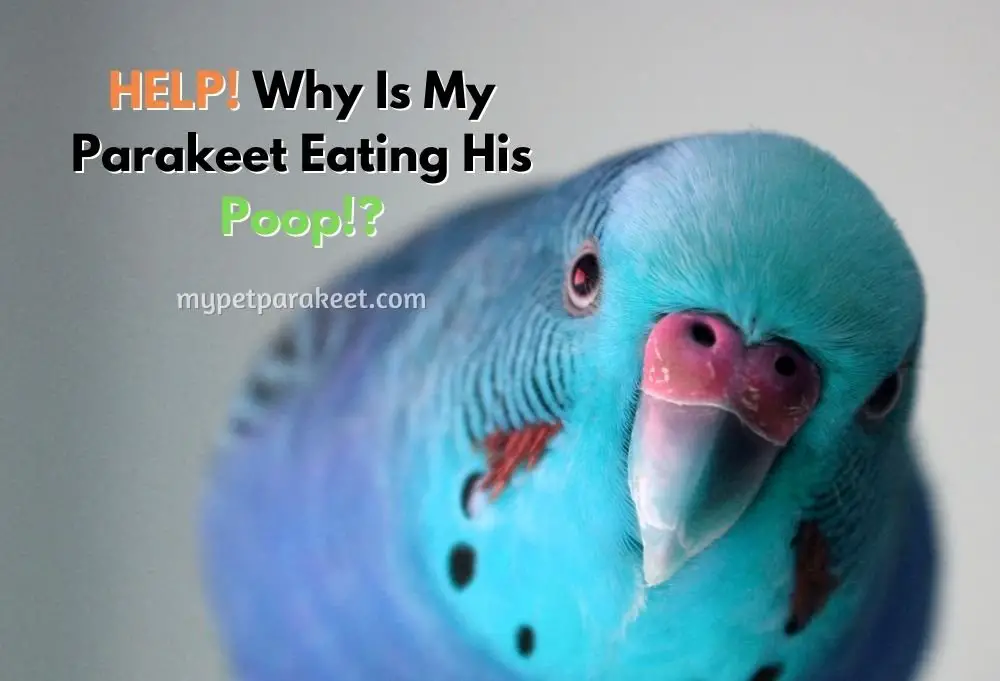There are many reasons why people may want to own a parakeet. These birds are small, adorable, and relatively inexpensive to care for. One of the most common questions new owners have is “do parakeets carry diseases?”
There are several things that can cause illness in these little birds, including;
- Infectious agents such as bacteria or viruses
- Bacterial or fungal infections
- Cage-related health problems such as feather plucking due to boredom or stress.
- Parakeets are prone to respiratory problems because of their fluffed-up feathers.
But do parakeets carry diseases that are harmful to humans?
Unfortunately, yes, they can. However, these diseases are not so common.

Psittacosis
Parakeets can spread a parasite called psittacosis, which can be deadly to humans if left untreated.
Psittacosis can be transmitted by contaminated bird droppings.
This disease is not very common, and it can usually be prevented by washing your hands after touching parakeets or their cage, which should also be washed regularly to minimize the risk of infection. Pregnant women are especially at risk for contracting psittacosis from a sick parakeet because this disease may lead to birth defects in the baby or even death.
According to Better Health, Psittacosis (also known as parrot fever) can be mild, moderate, or severe.
| Psittacosis Symptoms In Birds | Psittacosis Symptoms In Humans |
|---|---|
| Health.NY states that you will know your parakeet is ill if it has a poor appetite. | Fever |
| Ruffled appearance. | Headache |
| Eye or nose discharge. | Chills |
| Green or yellow-green droppings. | Swollen glands in the neck or armpits. |
| Diarrhea |
If you notice any of these symptoms in your pet parakeet or if you notice a rotting smell please contact your veterinarian immediately for treatment.
A blood test will need to be performed to determine whether or not an infection is present. If so, it will need to be treated with antibiotics.
Herpesvirus
Parakeets are also prone to getting infected with the herpes virus. This can happen if they come into contact with other sick birds. These include: Amazons, parrots, cockatoos, and many more types of parrots. The symptoms of herpes in a bird will be lethargy and/or crusty lesions on the skin where there was contact between two different infected birds.
The veterinarian at Wag Walking states that it is a mild condition and the most common symptoms are;
| Herpesvirus Symptoms In Birds | Herpesvirus Symptoms In Humans |
|---|---|
| Weakness | Anemia |
| Green urine | Coughing, |
| Depression | Diarrhea |
| Loss of appetite | Lethargy |
| Blood in the droppings | Loud Breathing |
| Diarrhea | Swelling |
| Regurgitation of clear mucus | |
| Bright yellow urine with little feces | |
| Papillomas in the oral cavity, eyes, or cloacal mucosa | |
| Abdominal distention due to an enlarged liver, spleen, or kidneys | |
| Sudden death |
A parakeet infected with the herpesvirus will carry the virus for life and can infect other birds. Oftentimes, the vaccine which is available for various strains is unsuccessful due to being administered too late. As this virus cannot be completely cured, the best defense against it is prevention.
Where do parakeets get their diseases?
Parakeets get diseases from other birds and can carry disease and transmit it in the following ways;
- Direct contact
- Air contamination via inhalation of infected dust particles
- Contaminated food or water
- Feces
- Nasal discharge
- Scales or flakes of skin that have been shed
- Feather debris
- Infected eggs
- Spread by Darkling beetles (Alphitobius diaperinus)
How can you prevent your parakeet from getting sick?
To protect your parakeet from herpesvirus and other bird disease, quarantine any new birds for at least 30 days before introducing them to your other parakeets.








